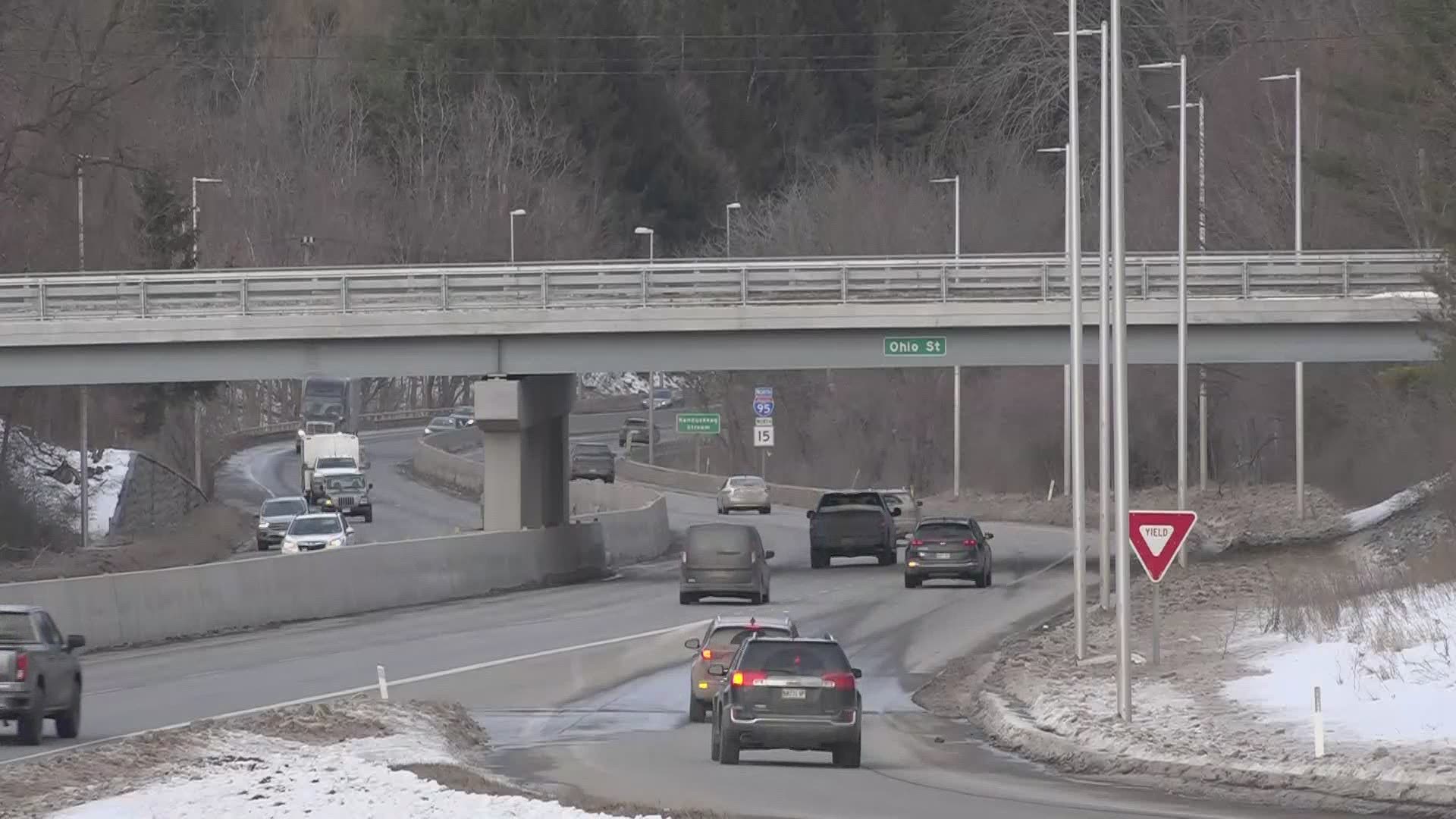MAINE, USA — $1.3 billion -- that's the amount of money a new report indicates deteriorated, congested, and inadequate roads and bridges cost Mainers every year. It's an issue that has impacted our state for years and is becoming more difficult to manage, as experts continue to ask for more funding.
The "Maine Transportation by the Numbers: Meeting the State's Need for Safe, Smooth and Efficient Mobility" report was released on Thursday, February 4, and conducted by the national nonprofit organization TRIP, which is based in Washington, D.C. but prepares reports for the nation and all 50 states.
This report indicates Maine's transportation network carries more than $80 billion of goods to and from the state each year, and there are 1 million licensed drivers in the state alone. Annually, the state's roadways see about 15 billion miles of vehicle travel. Those numbers dropped last year during the pandemic by 40 percent in April but had increased to just a 12 percent drop in October.
According to this report, the average driver in Bangor loses $1,561 every year because of inadequate roads, while the average drivers in Portland and Lewiston-Auburn lose $1,392 and $1,273 respectively. That money can include things like higher vehicle operating costs, traffic crashes, wasted fuel, and lost time.
This report says of Maine's major roads, 44 percent are in poor or mediocre condition -- 41 percent in Bangor, 46 percent in Portland, and 31 percent in Lewiston-Auburn. Thirteen percent of Maine's bridge are in poor or structurally deficient condition (though experts say they are still safe to use), and in Bangor and Portland, Mainers lose an equivalent of one full day per year stuck in traffic. Almost 800 people have been killed on Maine's roads in the past five years, and missing roadway safety features have contributed to a third of those fatal crashes. In 2019, crashes resulted in about $497 million in economic costs.
Maine faces an annual transportation funding shortfall of about $232 million, according to this report, per the Maine State Legislature's Blue Ribbon Commission. Experts say the Maine Department of Transportation is doing what it can with funds available, but it needs more money. There is no one solution to these challenges, but experts say making an effort to improve is important.
"It does have a direct impact on people's pocketbooks, and that's why it's so important to make sure that the roads are kept in good repair and that they're well-funded," Carolyn Bonifas Kelly, the director of communications and research at Trip, explained during a virtual press conference.
Bangor City Manager Catherine Conlow was also on the conference call. She says Bangor depends largely on vehicle truck transportation and says crews have been using a "band-aid approach", rather than creating lasting solutions because of a lack of funding -- not made better by the pandemic. The changing weather patterns this year have also caused issues, since the state isn't seeing hard freezes, so road surfaces are more prone to deteriorating.
"(Road conditions have) an impact certainly on the growth and the human condition in the city of Bangor and the region because we need to be able to have good jobs, and we need to be able to move our products, and we need to do things," Conlow expressed.
During the conference, Tim Doyle, the vice president of the Maine Motor Transport Association, said there is no "magic pill" to help solve the funding issue. Some of his suggestions include raising fuel taxes, since he says they haven't increased federally since 1993; raising the state gas tax, which he says hasn't increased in several sessions; requiring electric vehicle users to pay their "fair share"; looking into bonding options, and asking for more money to be moved from Maine's general to highway fund.
To read the entire report, click here.

